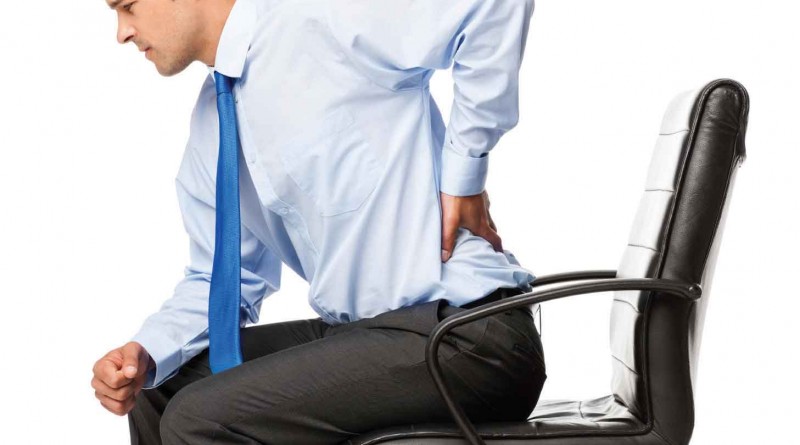Stress and Spine
The incidence of spinal arthritis, of late, has been going up among the youngsters alarmingly, due to changes in lifestyle and bad posture
By Dr Sudeep Jain
Whenever we talk or think about age related degenerative arthritis or osteoarthritis, the very first thing that comes to our mind is of an old, short stature, fat female in her sixties with painful, swollen, inflamed and deformed knee joints; with multiple medical problems like diabetes, hypothyroidism (thyroid hormone deficiency), hyperuricemia (increased uric acid levels) etc.
But, little do we know that the age related degenerative arthritis or osteoarthritis and other forms of inflammatory and autoimmune arthritis involve our spine the most and in a much more complicated way than any other joint in the body. And it is a myth that it does not affect the young.
It has been observed that today the process of ageing or degeneration is seen at a much younger age and is affecting the backbone more in comparison to any other joint in the body, including the knee joint. In fact, the incidence of spinal arthritis of late has been going up among the youngsters alarmingly, due to changes in lifestyle and bad posture, making it the most common lifestyle disease.
Structurally, our backbone and neck are not designed to sit for long hours. The human spine is essentially meant for erect posture, but owing to sedentary lifestyle a majority of our time is spent sitting. What add to the existing woes are faulty design of chairs, tables and workstations as well as wrong placement of laptops and computers which can put a lot of stress on our back and neck. In fact, wrong postures adopted while reading, watching television or working on laptops in sofas and beds can also affect the spine. IT professionals, call centre executives, accountants, people involved in a clerical job, dentists, scientists, doctors, etc all are predisposed to developing osteoarthritis or spondylitis of the spine at a young age, thanks to their long sitting jobs.
In addition to sedentary lifestyle and bad postures, there are other contributing factors too that can affect the spine. Stress, lack of physical exercise, poor lifestyle, overweight, wrong food habits, hormonal changes, smoking, alcohol, diabetes, thyroid hormone, deficiency of calcium and vitamin D, increased uric acid and cholesterol levels, heart and respiratory problems, environmental pollution and radiation from computers, mobiles etc. are all among them.
A new minimally invasive Endoscopic Debridement surgery offers a ray of hope for people suffering from incurable spinal arthritis.
(The author is Spine Surgeon and Director, Spine Solutions India, New Delhi)

